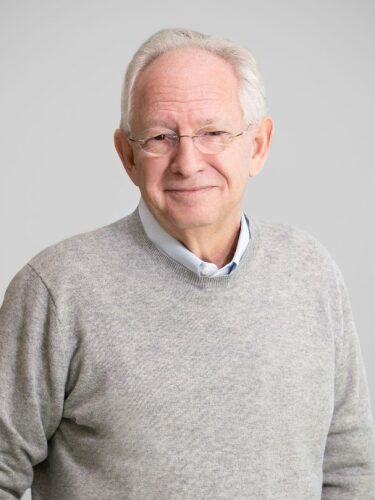From Eli Lilly to Karuna Therapeutics to current owner Bristol Myers Squibb, the newly approved schizophrenia drug had quite the journey to market. Former Karuna and Lilly executives discuss the “accidental” and “serendipitous” discovery.
What began as a therapeutic candidate for Alzheimer’s disease at Eli Lilly completed its development journey Thursday in the hands of Bristol Myers Squibb as Cobenfy, the first novel treatment for schizophrenia in 35 years. Andrew Miller, former CEO of Karuna Therapeutics who co-invented the drug, said this trajectory is not uncommon in neuropsychiatric diseases.
“The only treatments we have for schizophrenia was because chlorpromazine, which was an anesthetic drug in the ’50s, was discovered to have antipsychotic effects . . . and that was kind of the parent of all of the currently available treatments for schizophrenia,” Miller told BioSpace. Similarly, he added, the first approved treatment for depression was an anti-tuberculosis medicine.
“When you look at the history of psychiatric drug development, the source of innovation, in many respects, is serendipitous, human to human findings,” Miller said.
Weight Loss Rivals Were Once Alzheimer’s Partners
In the mid-1990s, Lilly and current obesity and diabetes archrival Novo Nordisk were collaborating on a muscarinic acetylcholine receptor stimulator agonist to treat cognitive impairment in Alzheimer’s disease. Acetylcholine is the neurotransmitter through which cholinergic neurons, which are involved in memory and learning, send their messages.
People with Alzheimer’s lose these neurons early in the disease process, said Steven Paul, who oversaw the program at Lilly. “So, our idea in those days was if we could stimulate the receptors for acetylcholine, maybe in the absence of those neurons we could still enhance memory and learning,” Paul told BioSpace. This idea birthed xanomeline, an acetylcholine receptor agonist that the partners studied in a large Phase II trial.
The results showed xanomeline had a “modest” but “significant” effect in improving memory, Paul said. However, the trial also revealed adverse events such as nausea, vomiting and excess salivation—effects associated with stimulating muscarinic receptors. Ultimately, the companies made the decision not to proceed with xanomeline “because we felt we didn’t have the requisite tolerability safety margin for patients with Alzheimer’s,” Paul said.
But, as part of the trial, the companies had also studied xanomeline’s effect on “abnormal behaviors” in Alzheimer’s such as hallucinations and delusions. “The drug seemed to treat these psychotic symptoms, and it seemed to prevent the emergence of these psychotic symptoms in these patients,” Paul said. With the exception of the adverse events, “that was the most striking finding.” Paul and colleagues published their findings in a 1997 paper.
“This was by accident,” Paul said. “We didn’t really think this might happen.”
A few years later, researchers at Lilly wondered if these same effects might translate to patients with schizophrenia. To answer this question, the company conducted a small study at Indiana University. “And sure enough, the drug seemed to work in those patients as well,” Paul said. But the adverse effects remained, and the companies did not pursue this indication either.
KarXT Is Born
Enter PureTech Health, where Miller, who was vice president in 2009, had an idea: Instead of tweaking xanomeline for more selectivity and fewer side effects—which Paul said “probably wasn’t going to work anyway”—why not combine it with a muscarinic antagonist molecule that blocks the peripheral side effects while leaving efficacy unaffected?
In 2009, PureTech founded Karuna Pharmaceuticals, which later changed its name to Karuna Therapeutics, to take the candidate forward, with Miller at the helm.
“It took a lot of effort to get from that concept to the actual, real matter of KarXT,” Miller said. Perusing the scientific literature, Karuna identified 65 muscarinic acetylcholine receptor agonist molecules and 114 muscarinic antagonist molecules. “So that gives you 7,410 possible combinations.”
Ultimately, Karuna selected 95 parameters, some specific to the agonist molecule, others specific to the antagonist, and still others about how combinations would function. At the end of this process, the researchers stuck with xanomeline as the agonist and selected trospium as the antagonist, and the combination became KarXT.
Interestingly, “[Karuna] couldn’t raise any money. There was very little interest,” said Paul, who joined the company as CEO in 2018 after Karuna published Phase I data. “Sometimes these are the best companies, when people turn you down.”
The Phase I trial, in which 70 healthy volunteers received either KarXT or xanomeline plus placebo, showed a significant difference in terms of side effects: 64% of patients in the xanomeline/placebo group saw the most common xanomeline-associated side effects vs. 34% in the KarXT cohort.
These early results generated some excitement. In 2018, Karuna raised $42 million in a Series A round, followed six months later by a $68 million Series B, which was later topped up to $80 million. That same year, Paul and Miller took the company public. Then, in November 2019, KarXT met the primary efficacy endpoint in the Phase II EMERGENT-1 trial, where it was also found to be generally well-tolerated, “and our stock just went off the roof,” Paul said. According to Biopharma Dive, Karuna’s value increased from around $400 million to nearly $3 billion following this data drop.
BMS Buys Karuna for $14B
By December 2023, Karuna had two successful Phase III trials under its belt, and BMS came knocking. Paul said they’d actually been in discussions with BMS since the J.P. Morgan Healthcare Conference in January 2023 but it wasn’t until the company submitted the New Drug Application for KarXT in September 2023 that the pharma company was ready to commit to buying Karuna.
“I presented to them the story, and we didn’t hear from them afterwards until later that year,” Paul said. “Then, once we filed the NDA with the FDA, we had them and another company kind of beating down our door.”
While Paul wouldn’t reveal the name of the other suitor, he did say that Karuna had “narrowed it to a bit of a bake-off with those two companies.”
Prior to agreeing to the buyout deal with BMS, Paul said Karuna had intended to launch KarXT itself. “We were building a sales force. We were building a commercial presence.”
In the end, however, Karuna decided BMS’ offer was in the best interest of its stakeholders. “When I joined the company, as a private company of maybe $20- $30-, $40 million bucks . . . we went public, and maybe we were worth at most $400 [million]. And then we were offered $14 billion dollars for the company, in less than five years.”
He called the decision bittersweet “because if the drug had been approved, if we had ourselves commercialized it, if it became a mega billion-dollar blockbuster drug ourselves, well, the company’s value would be much greater than $14 billion dollars.”
Paul calls KarXT “one of my early children” and said he is pleased with its progress. “They’re [BMS] doing a great job with it, so far as I can tell,” he said.
While BMS is starting with schizophrenia, KarXT/Cobenfy’s journey may be far from over. A recent post-hoc analysis showed that a subset of patients in the pivotal Phase III EMERGENT-1 and EMERGENT-2 studies with predominantly negative symptoms of schizophrenia—such as apathy and social withdrawal—at baseline saw a larger effect on negative symptoms than the overall trial population. And the drug may also treat the disease’s cognitive symptoms, including poor memory and low attention span, said Paul, adding that another paper on this was recently accepted for publication.
In a return to its roots, BMS has also shared plans to test Cobenfy in Alzheimer’s disease psychosis, as well as bipolar disorder. “Our expectation is that KarXT is our first foray into schizophrenia and serious mental illnesses,” Carlos Dortrait, SVP and general manager of U.S. immunology and neuroscience at BMS, previously told BioSpace, “but we are looking at expanding and looking very broadly across many diseases.”








